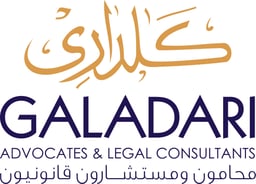News and developments
Dubai's Real Estate Tokenization Sandbox: A Strategic Leap into Blockchain Property Investment
Dubai has taken a significant step toward transforming its real estate market with the launch of the Dubai Land Department's (DLD) regulatory sandbox for tokenized property.
This initiative, launched in early 2025, is designed to explore how blockchain can enable fractional ownership of real estate through tokenization.
Tokenization in the real estate context refers to the process of converting ownership rights in a physical property into digital tokens recorded on a blockchain. Each token represents a specific share or interest in the underlying asset, allowing for fractional ownership that can be bought, sold, or transferred digitally. For example, a single property valued at AED 10 million could be divided into 10,000 tokens, with each token worth AED 1,000. These tokens can then be issued to multiple investors, enabling shared ownership of a high-value asset that would typically require substantial capital. Smart contracts—self-executing code built into the blockchain—govern the transfer of these tokens and ensure compliance with predefined rules, such as distributing rental income proportionately among token holders.
By leveraging tokenization, Dubai is positioning itself at the cutting edge of property technology, enabling new investment models and enhancing transparency, efficiency, and liquidity in the real estate sector. The initiative aligns with the emirate's broader digital economy goals, including its Real Estate Sector Strategy 2033 and Economic Agenda D33.
In March 2025, the Dubai Land Department (DLD) launched the pilot phase of its Real Estate Tokenization Project, marking a significant milestone in the emirate's pursuit of integrating advanced technologies into its property sector. This initiative, introduced under the Real Estate Evolution Space (REES) innovation drive, positions DLD as the first real estate registration entity in the Middle East to implement tokenization on property title deeds.
The sandbox allows DLD to test the digitization of real estate assets into tradable blockchain-based tokens. These tokens would represent fractional ownership of physical properties. The pilot phase, conducted in partnership with the Dubai Future Foundation and the Virtual Assets Regulatory Authority (VARA), is open to a broad range of participants including developers, tech firms, property management companies, and investors.
Tokenizing real estate offers numerous advantages for property markets, investors, and regulators alike:
These benefits align closely with Dubai’s ambitions to enhance the attractiveness, efficiency, and transparency of its real estate sector through technological innovation.
Dubai’s sandbox integrates the efforts of several regulatory authorities:
The Dubai Future Foundation (DFF) plays a central role in this ecosystem by serving as the government’s innovation engine. DFF is responsible for incubating emerging technologies and supporting public-private collaboration. Within the context of the DLD tokenization sandbox, DFF provides not only the framework for pilot testing but also the platform for onboarding qualified startups, fostering experimentation, and aligning innovation with policy.
DFF's involvement ensures that the sandbox is not just a regulatory trial, but also a launchpad for new business models in real estate. Through programs like the Dubai Future Accelerators, the foundation matches innovative companies with government stakeholders to co-create next-generation solutions. In the case of real estate tokenization, this means helping startups develop the tools, smart contracts, and investor platforms that will eventually plug into Dubai’s official land registry system. It also facilitates regulatory readiness by ensuring participants in the sandbox understand the standards required by DLD, VARA, and the Central Bank. As a result, the innovation framework led by DFF ensures a seamless bridge between vision and execution, fostering an environment where real estate innovation can be tested safely and scaled rapidly.
Dubai aims to become a leading hub for blockchain and digital assets, and real estate tokenization is a logical extension of this vision. By enabling property to be bought and sold digitally, the initiative supports D33's focus on innovation-driven economic growth. Tokenization helps attract international investors and tech entrepreneurs while boosting the liquidity and accessibility of one of Dubai’s most important sectors: real estate.
Several leading developers have already begun tokenizing property. Damac has partnered with blockchain platform MANTRA to tokenize $1 billion in assets, while MAG Group is working on a $500 million tokenization of the Keturah Reserve project. Internationally, similar efforts have occurred in Switzerland (Blockimmo), and the U.S. (Aspen St. Regis Resort), with Dubai now aiming to lead by institutionalizing these efforts within a clear regulatory and legal framework.
By focusing specifically on real estate and leveraging institutional support, Dubai offers a more sector-specific and collaborative approach.
Dubai’s real estate tokenization sandbox represents more than an experimental framework—it is a strategic platform for reimagining how property is owned, traded, and invested in. By integrating blockchain technology with a robust regulatory and innovation framework, Dubai is creating the conditions for a more dynamic, inclusive, and globally accessible real estate market. The collaboration between DLD, VARA, and the Central Bank ensures that the initiative is not only technologically advanced but also legally sound and investor-friendly.
This sandbox builds upon Dubai’s legacy as a global hub for innovation and real estate by offering a forward-looking model that other jurisdictions are only beginning to explore. It addresses long-standing challenges in the real estate sector, such as illiquidity, high transaction costs, and barriers to entry, while aligning with broader national goals.
For developers, technology firms, and investors worldwide, this is an opportunity to be part of a transformative ecosystem—one that blends real-world assets with the power of decentralized finance. As the sandbox matures, the insights and standards it generates could shape not only the future of Dubai’s property sector but also set a global benchmark for tokenized real estate transactions. With regulatory clarity, cross-sector collaboration, and a readiness to scale, Dubai is charting a path toward a more efficient, transparent, and accessible real estate economy.
Author: Amir Zafar Khan
